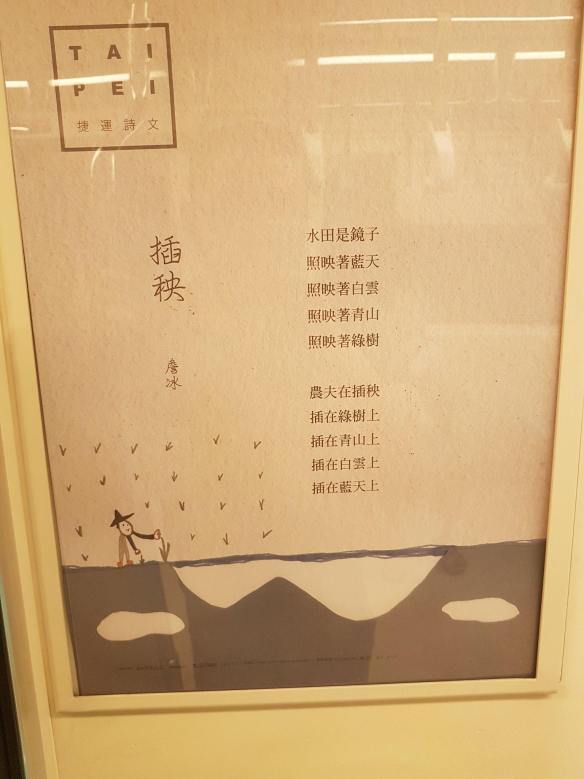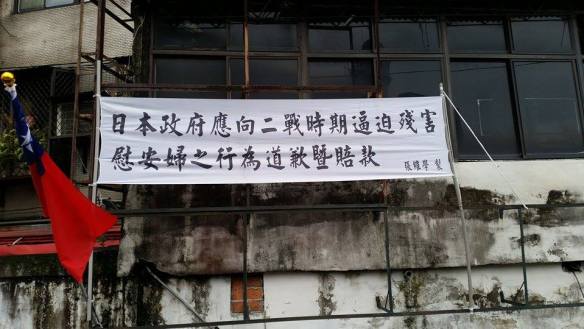
Planting Rice Seedlings
The paddy field is a mirror
Reflecting the blue sky
Reflecting the white clouds
Reflecting the black mountains
Reflecting the green treesThe farmer plants seedlings
Plants them on the green trees
Plants them on the black mountains
Plants them on the white clouds
Plants them on the blue sky
I liked the simplicity of this poem’s words and the reliance on the concept to get its message across. The childlike tone of the poem suggested something like a nursery rhyme, but I also liked the idea of the unreality of the world as seen through an agricultural viewpoint (through the reflection on the paddy field’s surface) and that though humanity might think they exert control over the natural world, this is illusory as a reflection in a mirror. One could read this another way also, as an admiration for the unending toil of a peasant-farmer’s work and the single-minded urge to survive.
Chan Ping (詹冰) was a Hakka poet born in the township of Zhuolan in Miaoli, Taiwan, in 1921 and was a student of Taichung County Taichung Middle School, set up by local elites such as Lin Hsien-tang and Koo Hsien-jung – the only middle school reserved for Taiwanese students during the period of Japanese colonial rule. He went to study pharmacology in Japan in 1942 at the Meiji Pharmaceutical School in Tokyo. He returned to Taiwan after qualifying as a pharmacist. He opened a pharmacy in Zhuolan before being invited to become a science teacher. He wrote poetry in Japanese during his years as a student at the Taichung Middle School and formed a poetry society called the Silver Bell (銀鈴會) with other students, including poet Lin Heng-tai. The society issued a poetry magazine called Green Grass (綠草). After Taiwan was ceded to the Republic of China in 1945 and the Nationalist Retreat to Taiwan in 1949 use of the Japanese language was heavily suppressed and the Silver Bell was forced to dissolve. After a transitional period of around 10 years, Chan started to write in Chinese and in 1964 he formed the Bamboo Rain Hat Poetry Society (笠詩社) along with Lin Heng-tai and other poets and they published a poetry collection called Green Blood Cells in 1965. As well as being a poet, Chan was a novelist, an essayist, a lyricist and a playwright. He died in 2004.

